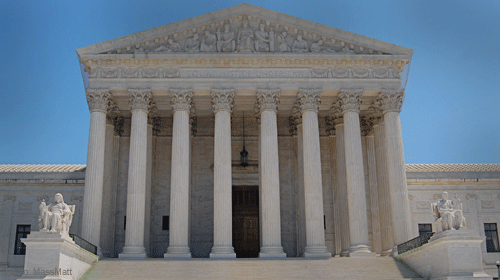
To shave or not to shave? That is the question the Supreme Court will consider today as it once again turns to fundamental issues of religious liberty.
This morning, the justices will hear oral argument in Holt v. Hobbs, a Muslim prisoner's challenge to grooming rules prohibiting him from growing a one-half-inch beard in accordance with his religious beliefs. The case was brought under the Religious Land Use and Institutionalized Persons Act (RLUIPA), which Congress enacted in 2000 to provide stronger protections for incarcerated people of faith, who are especially vulnerable to infringements of their religious-exercise rights.
Gregory Houston Holt – the petitioner in the case, who also goes by the name Abdul Maalik Muhammad – believes that Allah commands him to wear a beard at all times. The hair-grooming policy at his Arkansas prison, however, requires prisoners to remain clean-shaven. When Holt asked for an exemption, prison officials essentially dismissed his request out of hand, claiming that it would create a security risk.
As the ACLU argued in a friend-of-the court brief filed on behalf of several former corrections officers, Arkansas officials have no good reason for denying Mr. Holt a religious accommodation.
Accommodating individual religious practice tends to enhance prison security because it has a "positive effect on individual adjustment and rehabilitation," and it helps foster an environment where prisoners do not feel as if decisions are arbitrary and unreasonable. Indeed, as noted in our brief, 38 states, the Federal Bureau of Prisons, and the District of Columbia "permit beards with no restriction on length for all prisoners or for prisoners with religious motivation," and several other states allow beards up to one-and-a-half inches in length.
Unfortunately, Arkansas officials were unaware of these facts because they did not bother to review the hair-grooming policies of other jurisdictions. Nor did they undertake any other investigation to determine whether Mr. Holt's requested half-inch beard would actually pose a security risk. Mr. Holt and the ACLU have maintained that this is simply inadequate to meet the very high legal threshold that RLUIPA imposes on prison officials who want to deny a religious accommodation.
Last term, the Supreme Court missed the boat with its rulings in two religion cases. In Burwell v. Hobby Lobby Stores & Conestoga Wood Specialties Corp., the court, for the first time, allowed business owners' religious beliefs to trump their employees' rights and benefits. And in Town of Greece v. Galloway, the court authorized town councils to marginalize nonbelievers and those of minority religions by repeatedly opening meetings with prayers specific to one faith.
But, unlike in Hobby Lobby and Town of Greece, the religious exercise at issue in Holt will not foment discrimination or impose any other harm on third parties. Wearing a short beard for religious reasons is a personal and individual expression of faith. It is the very type of core religious exercise that no government official should be able to impede without the most compelling proof of necessity.
Learn more about religious freedom and other civil liberty issues: Sign up for breaking news alerts, , and .
